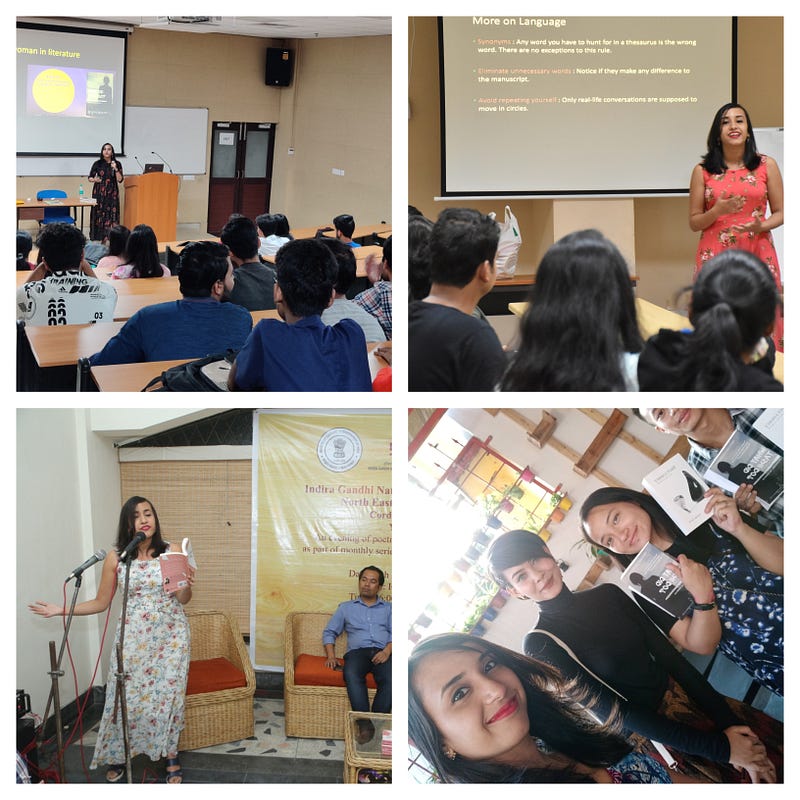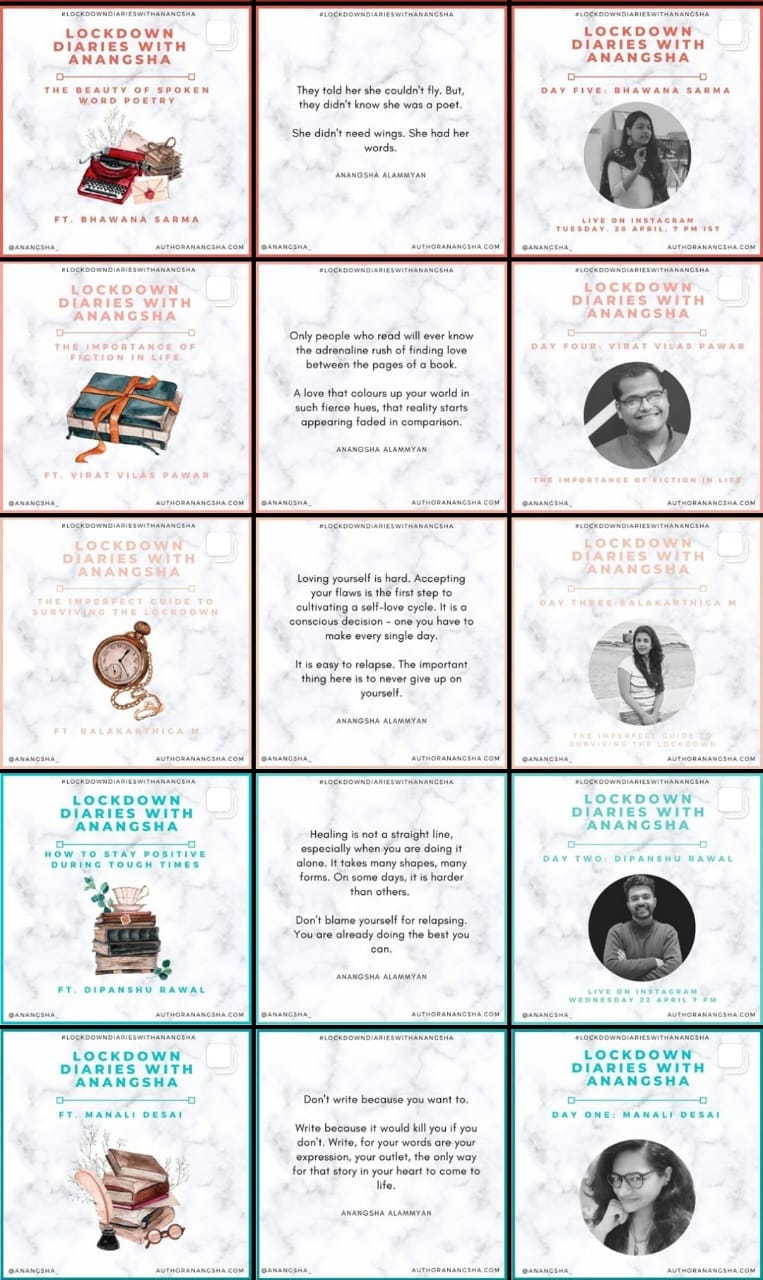4 Skills Essential to Being An Author (Apart From Writing)
Making it big as a self-published author doesn’t have to be hard if you master these skills

Making it big as a self-published author doesn’t have to be hard if you master these skills
You could say the word “Indie Author” is an incomplete description. Because when you independently publish a book, your responsibilities don’t stop at just writing if you want to make it big. You need to be your own editor and marketer as well.
After self-publishing three books and selling 10,000+ copies of my latest, I have taught myself several skills that have helped me on this journey of establishing myself in the world of reading. Of course, I don’t claim to be an expert. There is still a long way to go.
But, if you are a writer with a few books out or you plan to release a new book soon, I am listing some skills in this article that you can brush up. They will help you market your book better, reach a bigger audience, and build a community of readers.
1. Shameless self promotion
If you have any qualms about talking about yourself, you have to let them go. When you are an independent author, you have got to do everything on your own — right from putting the book together to telling the world it exists, from convincing people to buy your work to asking for reviews and following up after a few days.
There is no reason for you to feel ashamed about doing this. After all, if you don’t talk about your work, who will?
Ask for money
When you make it known on social media that you are an author, you might receive messages from long-lost school friends and strangers, asking you to write an article to promote their business, look over their job application, or edit some write-up they have prepared. When you invest your time in projects like this, don’t do it for free.
Ask for money even if the job requires only twenty minutes of your time. Remember: they are not paying you for these twenty minutes; they are paying for all the years you spent learning skills so you could get this work done in twenty minutes.
There should be no stigma attached to an author seeking to be paid for their art. We need to fill our bellies. Enough with the charity, already!
Sure, you might lose a couple of projects if you ask for money, but, I believe that is an excellent way to get rid of people looking for some “free” copywriting. Anyone seeking value will never hesitate to pay for good quality stuff.
Pitch to reviewers
Pitch your book to reviewers in such a way that it will make them want to read it. It is important that you know how to write a book synopsis, but even more important than that is to interact with people and converse with them in such a way as to sway their minds towards reading your book and writing a review.
One fail-safe way to do this is to make genuine connections. Remember that the reviewers are people. Talk to them, make friends, and do it because you genuinely want to (and not with the ulterior motive of using their services later to get book reviews for free). Also, whenever you send in a review request, make it clear that they have the option of saying no without it affecting your friendship.
Be open and honest. People always appreciate authenticity.
Get event invites
Since you are already talking about yourself, why not go the extra mile and ask for invites to literary events? If you go around the reader circles in your town, you will come across several literary festivals that organise weekly or monthly author workshops. Talk to the owners, make friends with the regulars, and pitch yourself as a possible speaker for the next edition of the event. People are always on the lookout for new talent to promote. You just have to put in the work.
I started by attending book-club meetups in my city (Guwahati, Assam). There, I met local book reviewers who were so fascinated with my introduction, that they asked for review copies. I also made friends with the hosts of the book-club. This connection helped me get an invite as the guest author in their next meet-up, and also as a speaker in one of the literary festivals they organised.
I started this aggressive approach to making public appearances in August 2019. Since then, I have been invited as a speaker in five talks, performed in four open mics, and conducted two author workshops. Here are some glimpses of the events I have attended over the past few months.

2. Public speaking
When you tell your story in front of a crowd, you have the power to move hundreds. Speaking from experience, there is something magical in watching a hall full of people staring transfixed at you, hanging on to every word you say with rapt attention. You are not just convincing them to buy one book; you are converting them into lifelong readers. This can be hard if you are a shy introvert like me. But, with time and practice, you can perfect the skill of public speaking.
I still remember the first few open mics I took part in. My knees were shaking. I was gripping the mic so hard, my fingernails dug into my palm. Every fibre in my body wished I could be anyplace else but here. But, I pushed on. I didn’t run away. I stood up and pretended I was confident. Sure, I was nervous. But, as long as the audience thought I was in control, it didn’t make a difference. I finished my performance. There were moments I forgot the words; seconds when I fumbled and stood still, not knowing what to do next. But, once the performance was over, the audience erupted in applause. I felt more relieved than accomplished. I remember coming home later and hating the video. There were several places I could have improved on, but then again, the audience was looking for the real me, not a perfect speaker.
And so, I continued speaking in public till it became second nature to me. My day job as a lecturer in an engineering college helped. Dealing with a class of eighty students sure made me understand that there was no room for nervousness and second-guessing yourself when you are on stage. You put on a mask of confidence and perform.
Yes, it was terrifying. But, the only way you can get over it is by keeping at it until you can make fear and confidence co-exist.
There is a saying “Fake it till you make it”. When it comes to public speaking, I am a firm believer in that.
3. Video recording and basic editing
No matter how good you write, you are losing out on a lot of publicity if you don’t share some stories in video format. A massive chunk of your audience can come from the video-sharing platforms like YouTube and IGTV. Apart from that, if you muster basic video-editing skills, you can put together a book trailer (to be released a few weeks before your book launch) to generate interest.
I wasn’t a big fan of making videos and uploading them on YouTube until the Covid19-induced home-quarantine started. Cut off from the rest of the world and unable to attend literary events, I saw a lot of people organising webinars and Instagram live sessions. That was when I realised that in times when social distancing is a must, videos come to our rescue.
To an average person sitting at home, you will connect more deeply if you speak to them on video rather than through the written word. Videos are an exciting way to expand your audience and get fans who aren’t readers per se.
When I started out, I was terrible at making videos. Being in front of the camera made me so nervous, I put on a fake high-pitched voice and started rambling on so fast, I was barely coherent. After a lot of negative feedback (constructive criticism?) and hours of video content, I have finally learned to be myself in front of the camera.
Here are some tips I learned on how to be less camera-conscious:
- Prepare your content before you make the video. You can keep a computer screen open in front of you when you record, so you don’t fumble while trying to remember the right word. (This has the added benefit of later serving as the subtitle file when you upload the video).
- Practise reading out the content in front of the mirror. Notice the places where you pause or stammer. Be conscious of this during your recording session.
- Wear something nice and comfortable that makes you feel confident.
- Choose a place that has less background noise. Turn off the fan if need be.
- Keep the camera at eye level. Balance it against a wall or use a tripod. Make sure it does not move while you are performing.
- Look straight into the camera and talk as if you are explaining to a friend. Remember: you are not an influencer. You do not need to use exaggerated hand gestures or a high-pitched voice. You are showing your audience a glimpse into your life. Keep it simple. Be yourself.
As for the editing part, no matter how perfect you are, you will need to remove background noise, cut out sections where you reached for the camera, and in general smoothen out and reduce the gaps.
I use the free software Audacity to remove background noise in the audio clip.
As for video editing, I use DaVinci Resolve. It is intuitive and can render high-quality videos in a short time. There are a host of tutorials you can find on YouTube to learn how to use the software. Another great option is Adobe Premier Pro that comes with a seven-day free trial.
However, if you are not willing to invest in a video editor early on, you can always use the built-in video editor in your computer. Windows 10 has a pretty decent video editor that can suffice for basic video editing.
4. Social media skills
Social media is a wonderful way you can get a large reader base. Since I have used Instagram extensively for building my community of readers, I will share some of the tips I have learned that will help you effectively connect with your potential readers. If you don’t have an author account there, I would urge you to create a profile today. It is a great way to reach more readers all over the world.
Post consistently
I think this goes without saying. Stick to a few broad umbrellas (mine are books, feminism, self-help/personal development) and post regularly at a fixed time window, so your readers know what to expect from you and when. Also:

- Use all features the platform has to offer (for example, Instagram has Posts, Stories, and IGTV). When you use all features of a platform, the algorithms will promote your content to a broader audience.
- Use 30 relevant hashtags. Choose hashtags with a large following (10k+) as well as smaller ones (a few hundred or thousand followers). Your aim is to make your post appear in the “Top” section of as many hashtags as possible so that more users will be able to view it for a longer duration of time.
- Maintain a theme. Instagram has a format of a grid where three pictures are posted in a row. If you can maintain similarity between the three photos in a row and a transition of colours from one row to another, it will give an aesthetic touch to your profile. The screenshot attached herewith shows the theme I tried to maintain on my Instagram profile for a few weeks. From experience, my follower-count and the engagement on each post increased drastically when I used a theme compared to the times when I posted randomly without making any plans.
- Use a grid planner. Before you post a picture, you can upload it on a grid planner and see if it matches the colour palette of your existing theme. I use the Preview app to plan my layouts, but, I have heard pretty good reviews of the Hopper Planner and Scheduler.
Engage with your followers
End all your posts with a question so that the users have an option to leave their replies in the ‘comments’ section. In addition, you can use the “Story” feature to take an “Ask Me Anything” session every alternate weekend.
Plan your Posts religiously, but show a glimpse into your daily life in your Stories. Your readers will love your attention to detail, but, they will also enjoy the unfiltered glimpse into your reality.
The Bottom Line
Summarising, here are the four skills apart from writing you need to make it big as an author:
- Shameless self-promotion skills to ask for money for writing assignments, get event invites to literary festivals and pitch your books to reviewers.
- Public speaking skills to convert a hall of listeners to potential readers and the confidence to speak fluently without fumbling for words.
- The confidence to appear natural in front of the camera and basic video editing skills to join video snippets together and remove background noise.
- Social media skills (with a focus on Instagram) which include posting consistently and engaging with your readers.
Apart from these, you need to have the stubborn self-belief that irrespective of whether your books are grabbing eyeballs or not, your work has value. That even if you aren’t making money from your book sales today, you surely will someday soon.
If the book is true, it will find an audience that is meant to read it.
~Wally Lamb
You also need the relentless will to keep pushing on despite not seeing immediate results.
You are a writer. Not a marketer. But, if you try hard enough, even independent authors can make it big. With that, let us make a commitment together. We are going to make our next book a national bestseller.
I have the confidence, faith, and the will to keep working relentlessly to see it through. Do you?
Tools Mentioned in This Article
- Removing background noise from recorded audio file: Audacity (free)
- Video editing: Adobe Premier Pro, DaVinci Resolve
- Instagram Grid Planner: Preview, Hopper Planner and Scheduler
If you liked this article, you might also enjoy-


